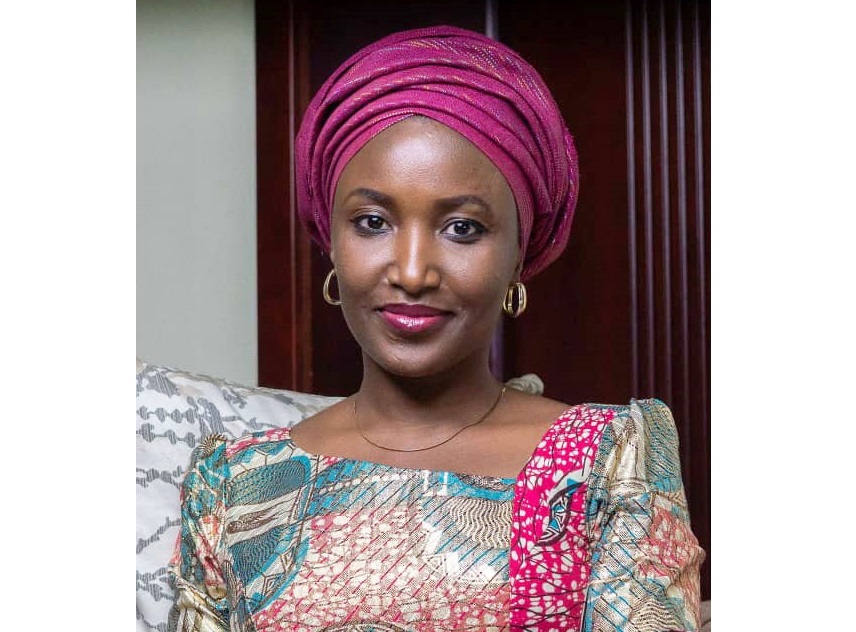Kaduna State Focal Person for Social Investment Programmes, SAUDE AMINA ATOYEBI, explained that Covid-19 has shown that almost everyone is economically vulnerable. In this interview, she sheds more light on how eligible citizens can benefit from Kaduna State’s all-encompassing Social Investment Policy.
Last week, Kaduna State Executive Council passed the Social Investment Policy. Can you give a few highlights of what the policy entails?
After several months of hard work by the State Steering Committee on Social Investments, which is composed of representatives of key Ministries, Departments and Agencies handling social protection issues, the Kaduna State Social Protection Policy was passed. Kaduna, to the best of my understanding, is the second state in the country to enact a Social Protection Policy.
One of the major challenges with Social Protection activities is the difficulty of coordination due to its cross-cutting nature. What the policy does is provide an overarching framework for Social Protection activities in the state. The vision of the governor of Kaduna State, Malam Nasir Ahmad El-Rufa’i, is to have a Kaduna state, where the poorest and most vulnerable residents are supported to live productive, fulfilling and dignifying lives and this document outlines measures that need to be taken to achieve this.
The document outlines social assistance which provides non-contributory support to the poorest and most vulnerable groups, including children, women, sick and injured workers, persons with disabilities and the elderly. Also, it highlights a social insurance which focuses on contributory programmes that protect against vulnerabilities that can affect income or welfare of people. Under this measure, we have health insurance schemes, pensions, unemployment and maternity benefits etc. In addition, the policy dwells on labour market interventions which focus on labour market risks and focus on reducing unemployment by providing skills and relevant policies and support to enable the unemployed find work. Likewise, the document talks about social care services which focus on providing community-based care services in order to ensure that beneficiaries of social protection interventions are connected to basic services. And it also dwells on legislations, regulations and institutional rudiments to ensure that the poorest and most vulnerable do not suffer from exclusion and are able to live a life of dignity.
Has the state a credible social register that identifies list of vulnerable people that can benefit from these interventions and other palliatives like the Federal Government’s National Social Investment Programme?
Kaduna state signed an MoU with the Federal Government to establish the State Operations Coordinating Unit (SOCU) in 2016. SOCU is domiciled in the Planning and Budget Commission and it is staffed with civil servants at the state and local government levels, who have been trained to collect data and enumerate poor and vulnerable communities and households in the state. There are guidelines which have been designed by the Federal Government and World Bank which guide their operations to ensure that they meet international best practices and make the process less susceptible to elite capture and fraud. This is because the register is meant for all poor and vulnerable households regardless of tribe, religion or political affiliations.
The Kaduna state Social Register currently has 216,398 households and 825,805 individuals on it. These are people who are ranked as the poorest and most vulnerable by their own communities, who are eligible for interventions targeted at addressing poverty, funded by interested parties such as government or donor agencies. Over 30,000 of these beneficiaries are currently enjoying the Conditional Cash Transfers. The State Executive Council has gone a step further by adopting the register as the primary database for poor and vulnerable households, in order to minimize duplications in collection of data. The state government has also mined from the database for the distribution of the Covid-19 palliatives. It is also in the process of enrolling 4, 000 individuals from the register for health insurance. The integrity of the register is not in question and the state government is putting it into various uses outside the Conditional Cash Transfers.
Will the state government complement Federal Government’s intervention programme, by instituting its own Cash Transfer?
Having the policy in the place is the first step. The next stage is the implementation plan and framework which spells out how the policy will come to life, how it will be actualized and how it touches the lives of the Kaduna people. The committee is already working on that document. The final plan will spell out specific interventions that the state government will implement. It is a consultative process so we are engaging with all relevant groups, including vulnerable individuals, to understand their challenges and design the proper interventions that would address them. The policy will not be limited to cash transfers only as there are various types of interventions that the state can provide.
For example, government will be focusing on protecting the informal sector workers from vulnerability, by breaking the barriers that inhibit them from maximizing their potentials. Ultimately, it is our hope that more positive interventions like micro-credit and livelihood support will be provided so that they are stable enough to enjoy social insurance programs like pensions and contributory health insurance like their counterparts in the formal sector. The state will therefore look at the options available to it based on feedback and the available resources and then roll out the relevant social protection interventions that will make the most impact.
Is there a mechanism in place for government to monitor beneficiaries, by ensuring that they spend the stipend that they receive from the Conditional Cash Transfer, on areas that will add value to their lives?
One of the aims of the Conditional Cash Transfer is to improve consumption within beneficiary households. One of the true tests of an accurate selection process is that they do not undermine the value of the transfer and secondly, they actually use the money for sustenance. It is only when you give people who are ineligible that you begin to worry about them using the monies for purposes other than what it was given for. We also have to be careful not to rob people of their dignity because they receive government stipends. Once the foundation is right with selection process, households know what their priorities are and there they need to channel these monies to better their lives, so the choice is theirs. Studies have shown that women (who are the primary beneficiaries in over 90% of cases), are able to appropriately manage resources in ways that take care of all household members.
As government, we do not just give the money and abandon beneficiaries, they are mentored and coached by officials and are taught basic skills like how to save individually and as groups and how to manage their small businesses. I am happy to say that over 500 cooperative groups have been formed by beneficiaries, engaged in different businesses such as agriculture, palm-oil processing. And they have collectively saved up to N12 million. Their businesses are thriving, and their lives are better off.
Is there a time span for the present beneficiaries to be weaned off the programme, so that others can join the list?
The aim is not for beneficiaries of cash transfers to remain there indefinitely. They are enrolled on the programme for a period of 36 months after which they graduate. The pool is dynamic as beneficiaries get enrolled in batches based on when they are mined from the Social Register. Therefore, they will graduate once their time elapses and there will still be existing and new groups joining the pool.
How sustainable is the entire social investment programme, seeing that government is removing subsidies from petroleum products and electricity, owing to lack of resources?
The Covid-19 pandemic which has disrupted nations’ economic projections and affected revenue streams, is a major challenge for all sectors of the economy and government must be strategic in its priorities. If Covid-19 has taught us anything, it is the need to look out for those at the bottom rung of the ladder. As experience has shown, you are only as safe as your driver, cleaner, cook etc. It has also shown that these people are a critical part of the system and society that we live in. Covid has also exposed that beyond poverty, we are all vulnerable. All it takes is one illness to wipe out a working class individual’s annual savings. So, social protection really addresses vulnerabilities outside poverty and provides a back-up plan in case things go wrong, or when you simply cannot afford your basic necessities.
There will always be challenges with allocating funds to non-infrastructural projects and programmes, but ensuring that our human capital is protected is absolutely important. There is data which shows the correlation between higher spending in social protection and better human development index outcomes. The day when petroleum wouldn’t be our main source of income will always come. Policy makers now need to think smart and futuristically and focus on other revenue sources. Thankfully, Kaduna State is already spending up to 40% of its budget on the social sector, including social protection interventions. Therefore, it is sustainable, if government is serious about it which is the case of Kaduna State. To further cement Social Protection, the policy has not just been passed by the State Executive Council, the governor is already looking at legislation to ensure sustainability long after this administration is gone.

 Join Daily Trust WhatsApp Community For Quick Access To News and Happenings Around You.
Join Daily Trust WhatsApp Community For Quick Access To News and Happenings Around You.

